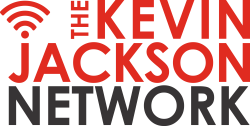
I hate to admit it, but I think that much of that CIA money we see operatives handing out in Hollywood movies comes from USAID.
The name sounds benign enough. The United States Agency for International Development (USAID), established on November 3, 1961, by President John F. Kennedy. It’s existence followed the enactment of the Foreign Assistance Act.
We were told that the mission of USAID was to administer economic assistance programs, aiming to promote global development and humanitarian aid. Thus, the carefully chosen name and ultimate moniker.
However, over the decades, USAID has turned out to be a much more sinister organization, and has faced allegations of operating as a front for the Central Intelligence Agency (CIA). Moreover, USAID is accused of engaging in activities that extend beyond its publicly stated humanitarian objectives.
Critics argue that the agency has been involved in clandestine operations aimed at influencing political outcomes in foreign nations, often under the guise of development assistance. A clever euphemism for “regime change”.
Historical Allegations of Covert Operations
In the 1960s and early 1970s, USAID maintained a close working relationship with the CIA, with officers often operating abroad under USAID cover. The now-disbanded Office of Public Safety within USAID served as a front for training foreign police in counterinsurgency methods, including controversial techniques.
A notable example is the “Cuban Twitter” project, known as ZunZuneo, launched in 2010. This covert operation aimed to create a social media platform in Cuba to foster dissent and potentially trigger a “Cuban Spring.” The platform attracted over 40,000 users with non-controversial content before introducing political messaging to incite unrest. The Associated Press revealed that USAID concealed its involvement to ensure the project’s success.
Why would an organization of this type need a $50 billion budget?
Mike Benz: USAID is not about aid. It’s about coordinating clandestine operations through foreign left-wing NGOs. With a $50 billion budget, it even surpasses the budgets of the CIA and State Department combined. pic.twitter.com/qeAEK4tObL
— Ian Miles Cheong (@stillgray) February 2, 2025
Domestic Implications and Recent Developments
Recent actions by the Trump administration have brought USAID under increased scrutiny. Elon Musk, a tech mogul and ally of President Trump, has called for the dismantling of USAID, describing it as a “criminal organization.” This aligns with indications that the administration might restructure or eliminate the agency, potentially folding it into the State Department. USAID’s main social media account has been deleted, its website is down, and many officials are on leave.
Furthermore, the Trump administration has implemented a comprehensive freeze on foreign aid, leading to the shutdown of thousands of programs globally and resulting in furloughs and layoffs for many workers. Congressional Democrats are concerned that Trump aims to absorb USAID into the State Department, a move they claim he lacks the authority to enforce, as the agency was established by Congress. The administration argues that much of USAID’s work is wasteful and promotes liberal agendas.
Controversies and Criticisms
USAID has faced criticism for allegedly funding bioweapon research, including projects related to COVID-19, raising concerns about the agency’s role in activities that may have unintended harmful consequences. Five days after the NIH finally admitted that EcoHealth had violated the terms of its Wuhan lab grant, USAID gave EcoHealth a new $13.2 million grant. The word “criminal” doesn’t even begin to capture it.
In fact, Elon Musk tweeted over the weekend: “Did you know that USAID, using YOUR tax dollars, funded bioweapon research, including COVID-19, that killed millions of people?” That just barely scratches the surface.
Additionally, there are claims that USAID paid journalists $20 million to produce negative reports on political figures, such as Rudy Giuliani. These articles were then used as a basis for impeachment proceedings against President Trump in 2019.
The agency has also been accused of paying media organizations to publish propaganda, thereby influencing public opinion and political outcomes. For instance, Senator Lindsey Graham serves as a Director at the International Republican Institute, a nonprofit funded by USAID, highlighting potential conflicts of interest.
Moreover, USAID has been implicated in funding organizations that influence prosecutorial decisions within the United States. The agency reportedly provided $27 million to a U.S. fiscal sponsor of a group that controls prosecutors funded by George Soros, directing them on which American citizens and politicians to prosecute.
In effect, USAID actually participated in regime change in the United States of America. And that’s what makes their present situation all the more delightful.
The Path Forward
As the Trump administration continues its efforts to dismantle or restructure USAID, questions arise about the future of U.S. foreign aid and the transparency of government operations. The exposure of USAID’s alleged covert activities contributes to broader discussions about the so-called “Deep State” and the need for accountability within government agencies.
The rapid pace of revelations has led some to question whether President Trump should moderate his approach in preparation for the midterm elections. With the Democratic Party facing significant challenges, the administration’s actions regarding USAID may have lasting implications for both domestic politics and international relations.
While USAID was established with the noble aim of providing international development assistance, its history is marred by allegations of covert operations and political manipulation. It’s no wonder that the current administration’s scrutiny of the agency reflects ongoing concerns about the role of government institutions in shaping both foreign and domestic policy. As Ronald Reagan so famously said, “government is not the solution to our problem; government is the problem.”



